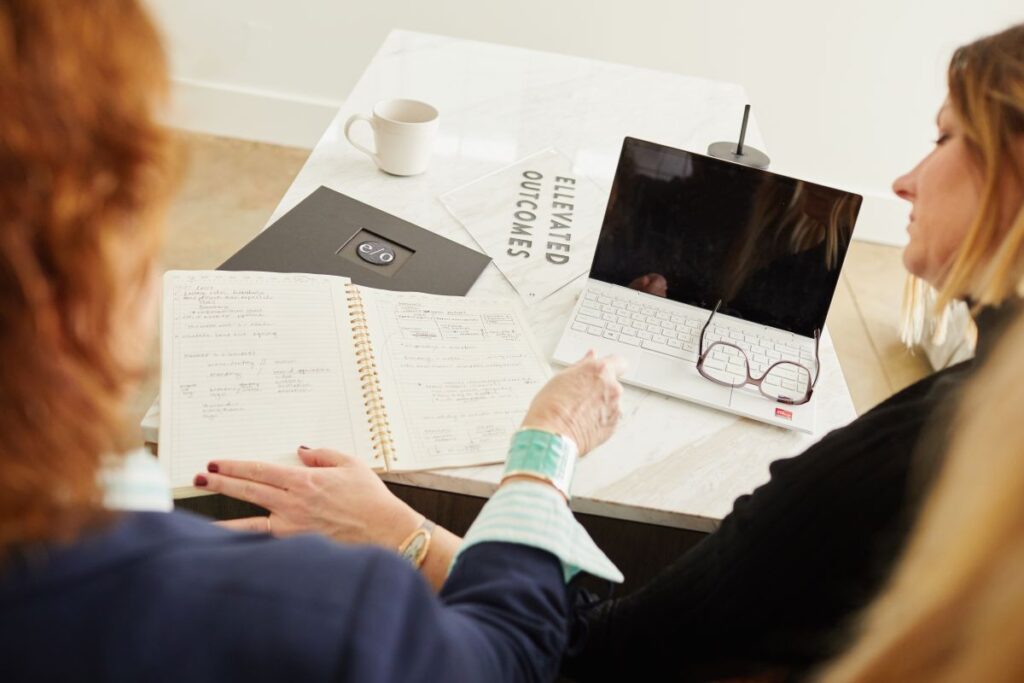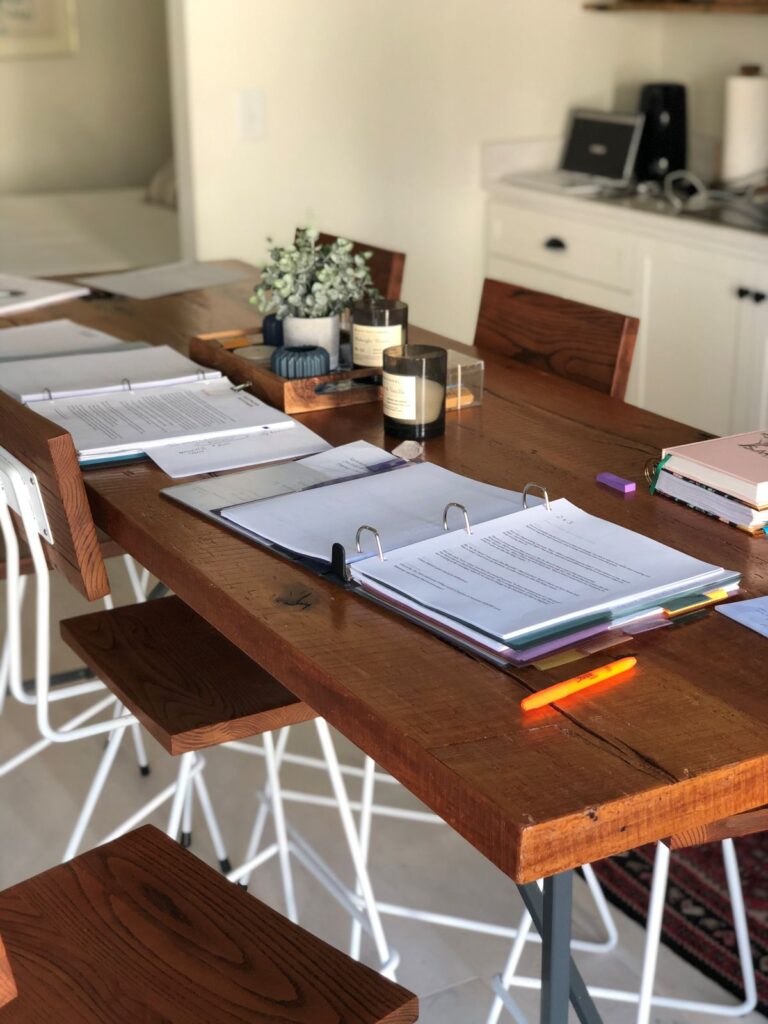How to Make More Luck
One of the things I most often say is “I’m so lucky that…” And as a woman, I’ve noticed an interesting reaction when I say this in a professional setting: women colleagues, bosses, and mentors will correct me, emphasizing, “It’s not luck. You worked for this. You earned it.”
And while I appreciate their sentiment and understand the origin of this correction, I see it another way. As you know, I do believe in the Universe and in the energy swirling around us that is beyond our human control. So while I do work hard and with smarts, I know that there is only so much within my control. I have to trust that something else is out there, conspiring on my behalf.

Let me give you one meta-example that forms the basis for this entire piece: my who-luck. I have had the wild fortune of having a network of bosses, mentors, and friends, who have been beyond my wildest dreams.
Sure, I’ve put myself in the right places, worked hard, and tried to pay it forward. But I’ve also always been so… me. I don’t try too hard to win others’ affection; I’m unapologetic about who I am and what I stand for (which has not always worked out in my favor, by the way). The luck is that these people I’ve come across have recognized something in me that they like, and they’ve given me immense time, advice, and sponsorship.
One of my very first bosses was a man by the name of Dr. Barnaby Marsh. I interned for him during college in Philadelphia. Back then, I recognized him as “important” (whatever that means to a college student). And now as a more tenured professional, I look at his bio and accomplishments and cannot for the life of me reconcile why he gave silly little me the time of day.
He and I stayed in touch for a few years after I started my first post-college job, and then it was over ten years before we re-established contact last summer in NYC. We caught up by taking a walk in Central Park (he’s an efficient, busy man, so naturally this was the way to get in exercise and pay a visit together).
I asked him what he was up to, and he nonchalantly mentioned, “Oh, Janice Kaplan and I just published a book, so we’re wrapping up press for that.”
“Wait, what!? You wrote a book? I love books! What is it? Where do I buy it?”
While it was very common for him to publish academic studies and papers, this was the first I’d heard of him writing something digestible for us mere mortals. He proceeded to tell me that the topic was making luck. I promptly booked it (get it?) to the Barnes & Noble on 86th & Lex and secured their last copy.
For three days straight I couldn’t put it down. Because within it, was the supporting evidence for why I feel so firm about sharing credit with luck. I learned that ironically, it is somewhat within our control. From How Luck Happens, here are five ways we can all make a little more luck…
1. Pay attention to what’s going on around you (literally).
The most important talent anyone who seems lucky possesses is a very basic one- the ability to pay attention and notice opportunities.
Janice Kaplan
One may think of this figuratively, but I prefer to consider it literally. Said another way, “Put yo’ phone down!” My husband often chides me for my Sunday phone fasts or that I don’t receive emails on my phone (quel horreur!). Yet he’s also the first to admit that he doesn’t know anyone more “in flow.” There was that time I ran into an old colleague in the airport in Brazil… or the time I re-discovered a friendship with my middle school classmate in our new hometown Nashville. I seem to mysteriously run into people I know, handing me lucky breaks, no matter where in the world we are.
2. Put yourself where you want to be.
‘Where you spend your time is important… To get lucky, you have to be in a place where opportunities are going to be around you.’
Dr. Barnaby Marsh
To me, this again has such a physical nature. If you want more of x, y, z, you have to literally go to where that exists. Spend time with those people. Act as-if.
This is why, a few years ago, I talked Dave into working with a bank and wealth management firm that specializes in people who are way wealthier than us. We don’t actually belong there yet; we know that, and our planners know that, but I want us to be privy to the same advice, mindset, and connections that those people receive. We’ve put our money and planning in the place where we want it to end up.
3. Be ready to ask for help.
‘I got this role because I was open and frank and asked for help. I think the more we are all clear about the help we need, the more that people can help us.’
Sree Sreenivasan
I used to be an obstinate person who didn’t like the vulnerability associated with asking for help. But boy, have I changed my tune; these days, I loooooove help. The issue isn’t asking for it; it’s articulating what kind of help I need (hello, blind spots).
I have some fabulous people around me, who readily offer, “What can I do to help you?” I should know better by now, but I never have an answer ready! Just a few weeks ago, a very important mentor made this generous gesture, and I couldn’t conjure up an intelligent answer <face palm>.
I didn’t want to pass up the his generosity and the luck that this could afford me. So, a couple weeks later I did circle back to say, “I thought of something! Is your offer still good?” Luckily, his generosity stretches further than my lack of preparation, and my luck hadn’t yet expired.
But try to be more graceful than me: know what you need and be prepared to find opportunities that can fulfill it.
4. Mitigate risk.
‘I thought to be an entrepreneur you have to be a risk taker and you have to be all in. And what I didn’t realize at the time was, first of all, successful entrepreneurs are much more likely to play it safe and have backup plans than failed entrepreneurs.’
-Adam Grant
As a fellow entrepreneur, I’m fatigued by the sexy tall tales of entrepreneurship that surround us. The ones touting unicorn companies, which make great fortune seem like luck was the only thing propelling them.
Admittedly, I have a very conservative appetite for risk (you don’t spend 11 years working in insurance for nothing!), so my BHAGS are always the result of carefully planned systems and actions that create compounding results.
It’s the reason that I saved three years of personal operating expenses before starting a company and one of the reasons that we launched our Airbnb last year. I had a destiny to fulfill; and I wanted to give myself the (financial) support and freedom to fulfill it.
5. Climb up – and down – the mountain.
‘We’ve been analyzing how companies can maximize their strategies for optimal gain. We call it ‘local hill-climbing strategy…’ There’s no direct path from peak to peak. So to optimize your luck, you might have to pass through a valley.’
Making luck sometimes requires a willingness to climb down and go into the valley. You endure the worst moment (or year) of your life in order to go for a luckier one.
-Dr. Barnaby Marsh & Janice Kaplan
This is my least favorite rule but has brought me great comfort during troughs. For those brief moments of time when you’re on top of the mountain, take it all in. And when you’re down, know that this is part of luck’s process.
I happen to be in a trough at this very moment. But that doesn’t negate all the luck I’ve been fortunate enough to garner during the climbs – and even today, still.
Hands down, the greatest category of luck in my life is my “who-luck,” as Jim Collins calls it. The people in my circles? Again, beyond my wildest dreams because of their technical capabilities and overall cool-ness (how’s that for a distinguished term, haha). But more importantly because of who they are. What’s important to them and how they operate in the world. Barnaby is the pinnacle example of this: by society’s and education’s standards, he’s an unbelievably successful man. The credentials speak for themselves. And he’s one of the most fantastic human beings I’ve ever known. There is not a person more humble, curious, and equalizing than him. This is all part of the luck equation, if you ask me.
So when we think about luck, we can see that there is a science. The five steps above are practically a formula. Yet after reading this, I am even more emphatic to declare that “I’m lucky.” Do we each have a hand in creating our luck? Yes. We can put ourselves among the people and places where it lives.
But that transcendence. That next level where the opportunity or the person who comes our way is just fantastic, soaring through our expectations and exceeding our wildest dreams? That is luck. It doesn’t take away from the hard work and preparation; it simply surrounds the hand at play and opens up a world of opportunity.


